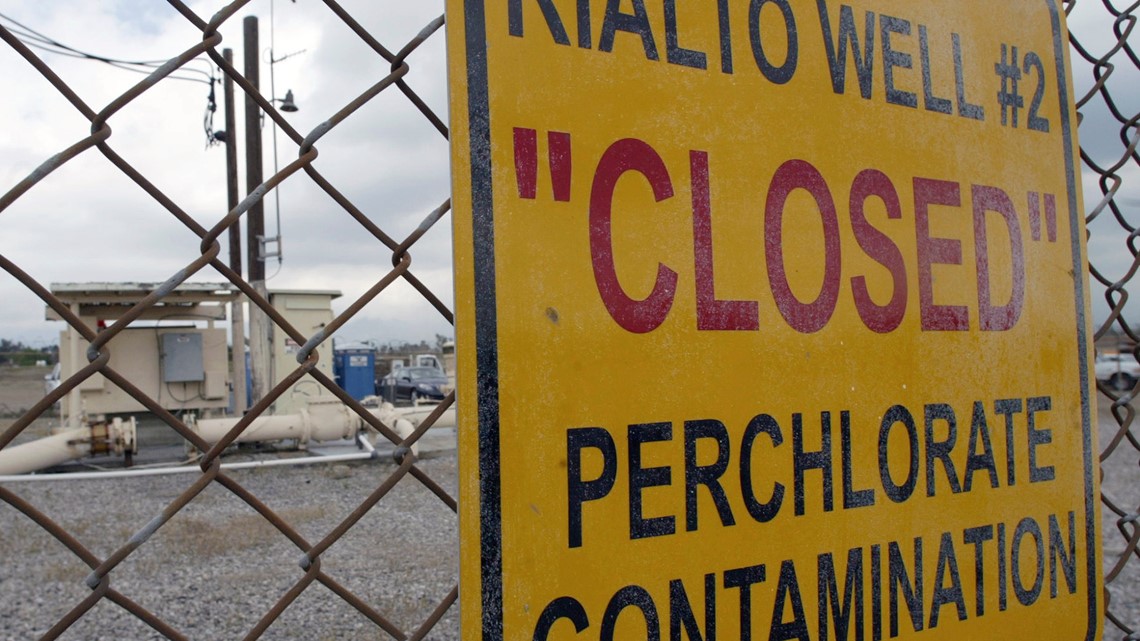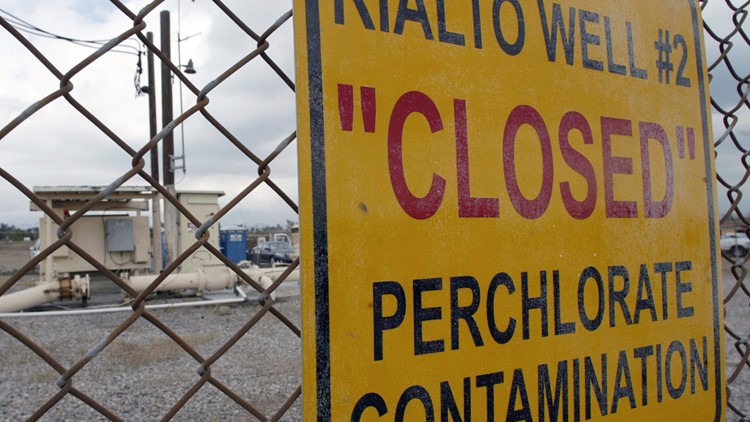WASHINGTON — An Environmental Protection Agency proposal to drop any federal regulation of a water contaminant shown to damage infant brains would translate to lower IQs and other problems for an unknown number of American babies, pediatricians and public health groups say.
The EPA has said since last year it is considering four options for dealing with perchlorate contamination in drinking water, including not adopting any regulation at all. EPA spokeswoman Corry Schiermeyer denied reports that the Trump administration had decided to go with the do-nothing option. She confirmed, however, that the agency expected to send a recommendation to the White House Office of Management and Budget “shortly.”
Perchlorate is an ingredient in rocket fuel, explosives and ammunition, and has seeped off military sites into groundwater and waterways. Perchlorate contaminates the drinking water of as many as 16 million Americans, the Obama administration said in 2011, when it announced the EPA would set maximum limits for it for the first time.
Perchlorate can damage the development of fetuses and children, including causing measurable drops in IQ in newborns, the American Academy of Pediatrics said last August in urging the “strongest possible” federal limits. Studies cited by the doctors’ group included one showing nine out of 13 breastfeeding infants were ingesting significant levels of the chemical.
“To say that is acceptable is flabbergasting,” Erik Olson of the Natural Resources Defense Council advocacy group said of the studies on the chemical making babies measurably less smart.
Ordered by a court in 2018 to come up with regulation by this June, the EPA said last year it was looking at four options, including a limit for perchlorate in drinking water far higher than those that California, Massachusetts and other states are currently adopting.
The EPA said then that another of the options it was looking at was dropping the proposal to regulate perchlorate entirely, based on the contention that “perchlorate does not occur in public water systems with a frequency, and at a level of public health concern.”
The New York Times, citing sources it did not name, said Thursday that the EPA had decided to go with the no-regulation option.
Schiermeyer, the EPA spokeswoman, said in a statement, "The agency has not yet made a final decision.”
However, the EPA on Thursday also put out what it called “fact sheets” arguing that state-level regulation for the chemical in drinking water, along with other clean-up efforts, already had achieved “meaningful reductions” in perchlorate.
EPA Administrator Andrew Wheeler said the handling of perchlorate in drinking water already was a “success.”
The language and argument echoed what the agency said last year in citing the case for the no-regulation option.
Olson said the EPA required limited national testing of perchlorate only from 2001 to 2005, when it found the widespread perchlorate contamination.




